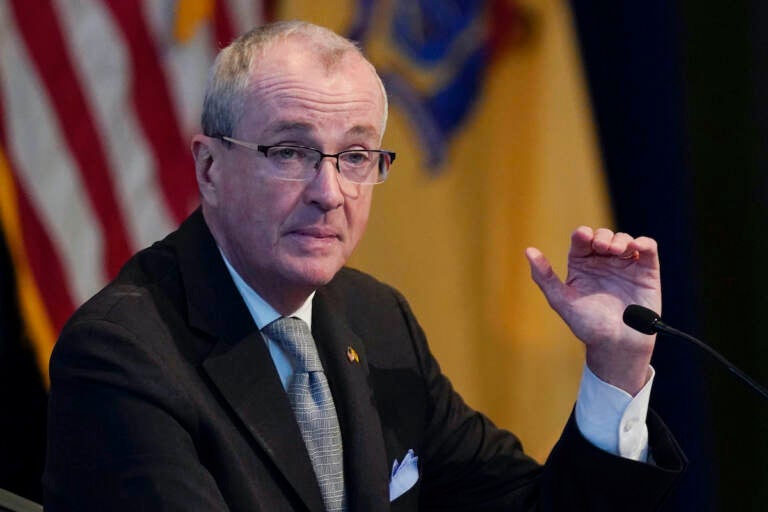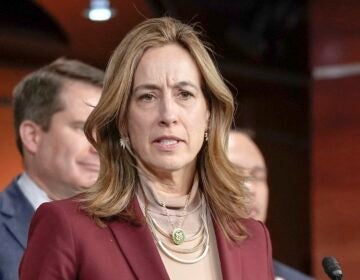Gov. Murphy pushes to make N.J. state universities more transparent about their finances
Under the proposal, public colleges and universities would have to submit fiscal monitoring reports and undergo a sweeping audit every three years.

File photo: New Jersey Governor Phil Murphy speaks to reporters during a briefing in Trenton, N.J., Monday, Feb. 7, 2022. (AP Photo/Seth Wenig)
New Jersey Gov. Phil Murphy is throwing his support behind legislation designed to make the state’s public colleges and universities more fiscally accountable.
The package of bills requires the schools to submit a yearly fiscal monitoring report to the Secretary of Higher Education and undergo a sweeping financial audit every three years.
It also requires all public institutions of higher education in the state to publish a copy of their annual fiscal monitoring report online, and requires board members to regularly complete training on financial management.
“Our public colleges and universities shouldn’t just be held to the highest levels of accountability and transparency by their students and faculty,” Murphy said. “They must be held to the standards by us in government, and they must be held to the standards by all residents who invest in these institutions, through their tax dollars.”
One bill would also give the state government the authority to appoint a state monitor to manage an institution’s “fiscal operations and governance” if state audits reveal fiscal instability.
Murphy’s endorsement comes as higher education institutions in the state face financial scrutiny. In recent years, New Jersey City University dramatically cut back on programs and staff amid fiscal instability. And Bloomfield College announced a merger with Montclair State University after seeking financial support due to a pandemic-related downturn in enrollment.
“Those schools graduate less than 20% of their students in four years,” Sen. Joe Cryan (D-Union) said. “The public universities in the state of New Jersey have a collective debt of $6.7 billion,” Cryan said. “Most folks don’t realize that. That is a significant, significant amount of money.”
A June 2021 North Jersey Record report found that half of colleges and universities in the state had operating deficits in 2019, “some with persistent seven- or eight-figure gaps between revenue and expenses.”

Get daily updates from WHYY News!
WHYY is your source for fact-based, in-depth journalism and information. As a nonprofit organization, we rely on financial support from readers like you. Please give today.






